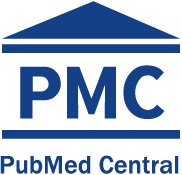Antimicrobial activity in vitro of camu-camu (Myrciaria dubia) against oral microorganisms: a systematic review
DOI:
https://doi.org/10.17843/rpmesp.2019.364.4270Keywords:
Review, Phytotherapy, Myrtaceae, Dental caries, Microbiology, PeriodontitisAbstract
Objectives. To evaluate the antimicrobial activity of Myrciaria dubia on oral microorganisms. Materials and Methods. A systematic review of the literature following PRISMA guidelines was conducted through searches of studies published between 2008 and 2018 in Pubmed, LILACS, SciELO, ProQuest, EBSCO, and Google Scholar. Results. Eleven (11) in vitro studies were gathered; all the studies showed positive antimicrobial activity on gram-positives, mainly by each of the parts of its fruits. However, such activity compared to chlorhexidine in only two studies, and, in another study, it was better than an antibiotic. A high risk of bias was detected in most studies. Phenolic compounds, including polyphenols and acylphloroglucinols, were identified as responsible for its activity. Conclusions. There is evidence of antimicrobial activity in M. dubia. Its study as an antimicrobial against oral microorganisms is still incipient, but there is great potential thanks to the potent phytochemicals it contains. Also, additional quality studies are required: comparing their activity versus oral antiseptics and on microorganisms associated with dental caries and periodontal disease.Downloads
Download data is not yet available.
Published
2019-11-20
Issue
Section
Original Article
License
Copyright (c) 2019 Revista Peruana de Medicina Experimental y Salud Pública

This work is licensed under a Creative Commons Attribution 4.0 International License.
How to Cite
1.
Pardo-Aldave K, Pareja-Vásquez M, Guillén A, Ureta-Tapia JM. Antimicrobial activity in vitro of camu-camu (Myrciaria dubia) against oral microorganisms: a systematic review. Rev Peru Med Exp Salud Publica [Internet]. 2019 Nov. 20 [cited 2025 Jun. 23];36(4):573-82. Available from: https://rpmesp.ins.gob.pe/index.php/rpmesp/article/view/4270




























